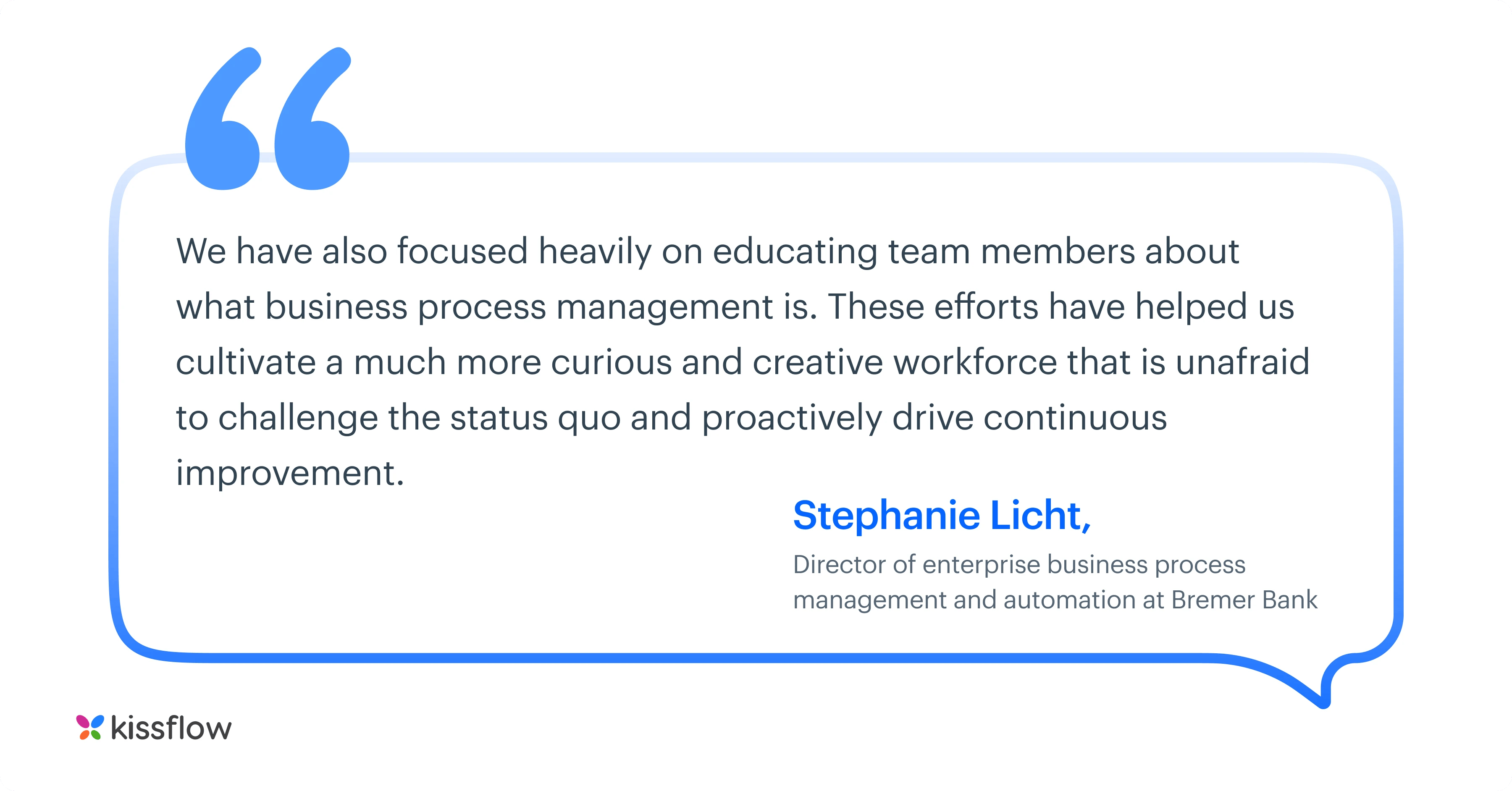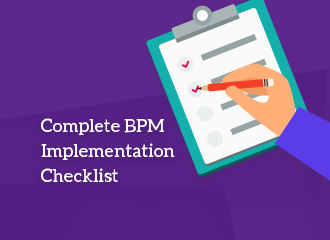BPM and project management are two distinct yet intertwined pillars that can revolutionize an organization's internal systems and processes. Understanding these concepts is not just beneficial but essential for a CIO looking to drive efficiency and productivity.
This article promises to be your ultimate guide to deciphering the nuances of business process management (BPM) and project management. Highlighting their key differences will empower you to leverage both strategically, ensuring you get optimal results from each.
So, if you're a CIO striving to streamline your organization's operations while executing projects flawlessly, this article is a must-read. Keep it handy for those moments when you need a quick refresher on how to balance and maximize the benefits of BPM and project management.
Understanding Business Process Management
Business process management is the art of creating, managing, and refining an organization’s internal processes that determine how resources, information, and collaboration flows. Forrester claims that BPM initiatives can result in productivity benefits of 30 to 50 percent.
BPM increases visibility into work across operations which has allowed us to align teams, leverage best practices across silos, and deploy resources in a more effective manner.

The aim here is quite simple.
With a definite way of organizing processes, it’s easy to build and maintain better processes that help the organization do more with less and consistently generate successful results on a routine.
Business process management achieves this goal via three main pillars, namely:
People
Far from simply designing intricate systems that can function independently, BPM is targeted at simplifying the way people work. One of the ways it does that is by equipping the applicable members of the organization to manage their work with intelligent processes that make it easier to scale success. Overall, BPM is a people game from beginning to end.
Processes
BPM focuses on not just creating processes, but more on managing them so they can function at peak efficiency. Similarly, BPM aims at refining these processes so organizations can drive results even faster with incremental improvements continually made over time.
Technology
Modern BPM is essentially impossible sans the power of technology. From the tools used for actually doing BPM to the training modules for equipping an organization’s staff, BPM loops in the technology factor to provide the best experience possible.
Put together, processes when harnessed well by the people factor, and deployed on a firm tech foundation join hands to contribute to progressive process management excellence that drives your organization forward.
And what is project management?
Project management, on the other hand, is simply the art of organizing tasks in an orderly format and managing them based on a defined blueprint. The blueprint factor here is a huge part of project management.
Project management is all about following a well-defined framework and using that as the guiding pattern for moving projects and the tasks associated with them from to-do to done.
Differences between BPM and Project Management
The key differences between BPM and project management are the factors that determine how they function, the kind of problems they solve, and ultimately, how you use them.
The goal of process management is efficiency; project management focuses on transparency.
Process management is designed to integrate with wherever else the organization organizes its work; project management solutions are designed to adapt quickly to change.
Process management is designed with the entire organization in mind, while project management is geared towards teams.
In process management, data is moved across the entire system automatically while in project management, data is moved manually between stakeholders.
How projects become processes
In the race to get organizational goals delivered satisfactorily, with either process management or project management, something interesting happens.
As projects are repeatedly carried out, the organization forms a pattern of how they’re carried out and all things being equal, reuses that outline over and again.
The aim here is to get more done —faster, by leveraging the experience and pattern from the previous project delivery.
Here is where a project is gradually turned from a unique target that has to be planned from scratch to a blueprint that can be repeated at scale—essentially, a process.
When to use business process management vs. project management
Understanding what BPM and project management are helps you distinguish between both concepts so you can choose the right solution for the situation you have at hand. Here’s a breakdown of where and when you should use processes or a project management framework for organizing your work.
Use processes when…
- you already have a laid-out blueprint for getting a task done. Processes offer a repeatable that can be scaled to get tasks done over and again with minimal friction,
- you’re looking to keep improving the speed and accuracy with which the organization works,
- documentation is a huge part of your project execution process. BPM is more suited for keeping track of performance data for analysis by relevant stakeholders who take this data and use it to further improve the process.
On the other hand, projects are nearly adjacent to processes— but still unique in the scope they cover. You can use a project management framework when…
- you’re starting a project from scratch without any previously defined process for getting the tasks associated done,
- there’s more time to experiment and discover new ways of achieving targets,
- you have a cross-functional team that you want to teach the ropes of the job. Project management is an immersive experience that involves the entire team and makes it easier for everyone to get better at various branches of work needed to deliver a project,
- the task/project at hand is a novel one, a mixture of several other projects without a single process for solving it without splitting it up
Project management offers a framework for moving work forward, but requires more hands-on control and input from essentially the whole team, at almost every stage.
Process management, however, offers a simpler solution for getting work done since it takes a successful project execution, makes it the standard for future projects, and keeps improving it every step of the way.
Conclusion
In all, both business process management and project management as a whole hold significant advantages for any organization—as long as you choose the right solution for your needs.
Processes are best suited for tasks and targets where an outline for getting them done has been identified. Project management is inarguable better when you have or involve a cross-functional team in the early stages.
That said, knowing that processes offer you the best choice forward, how do you implement them? Or perhaps you already use a couple of processes to get work across your organization done faster and more accurately. How then do you organize them so you can improve over time and get even better results?
Kissflow Process is the answer.
Kissflow Process is designed for dynamic teams that want to fully explore the power of processes, albeit in a simple, easy-to-use format that makes it easier getting work done.
Kissflow does this by a combination of:
- intelligent work-flowing capabilities,
- simple collaboration and communication capabilities, and,
- smart integrations that sync with the tools you already use.
Put together, Kissflow Process makes it easy to repeatedly get stellar results with lesser resources.











